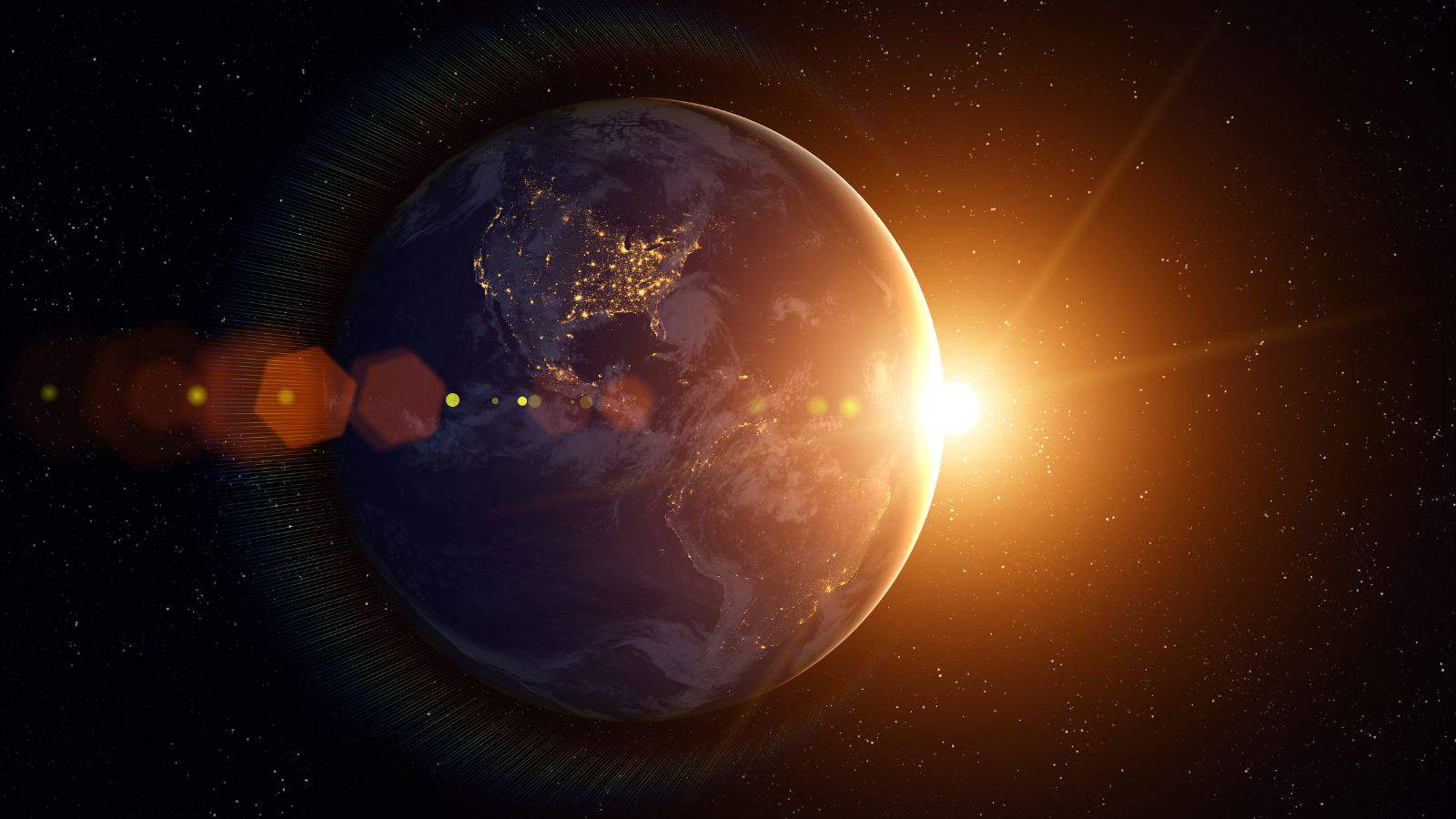When it comes to science, not everything has a definite answer and there are still many things we need to research as a human race. Even if we do, there are chances we’ll never find answers to life’s biggest mysteries. Here are 20 of the biggest scientific mysteries.
Origin of Life

There are many challenges when it comes to understanding how life began because not everyone agrees on the same theory. This is supported by UChicago News, which writes, “Various answers have been proposed, all of which remain unverified.” These theories include the conditions on Earth at the beginning of time and space.
Dark Matter Identity

Many scientists have observed unaccounted gravity in space. There are many difficulties that come with detecting these dark matter particles and this has caused conflicting results. Astronomical scientists are still searching for dark matter, but mixed results mean it may always be a mystery.
Dark Energy and Cosmic Acceleration

Dark energy is causing the universe to expand at increasing rates. There’s a theoretical concept that cosmic acceleration is needed to keep the universe in static equilibrium. There have been discrepancies in the strength of dark energy predictions, which is why they’re still hard to figure out.
Measurement of Evidence

Many problems arise with how significant certain statistics are in scientific research. This has led to paradoxes in data interpretation, and with scientists interpreting statistics differently, it makes it hard to come up with any definite answers. It can be hard for scientists to agree on findings, which means we don’t get answers.
Genes, Cancer, and Luck

Most scientists agree that both genes and a person’s environment are causes of cancer. However, they find it difficult to agree on percentage amounts. For example, a review from the University of Glasgow in the National Library of Medicine says, “It is known that both nature and nurture play important roles in cancer development through complex gene-environment interactions; however, the exact mechanism of these interactions in carcinogenesis is presently unclear.”
Existence of Extra Dimensions

At this moment in time, most scientists agree that there are three spatial dimensions. However, mathematical insight has suggested that there could be more, but challenges in this field make it hard to know for sure. We still have a long way to go when it comes to understanding the universe’s structure.
Nature of Time

There have been many philosophical and scientific questions over the theory of time. These concepts include how time flows, its direction, and even the possibility of time travel. Many scientists believe time could have a connection with game theory and cellular automata.
Quantum Mechanics vs. General Relativity

Quantum mechanics and general relativity are two completely different scientific theories. There have been many historical debates and theoretical challenges from scientists across the world. Issues arise due to general relativity being able to explain huge theories such as gravity, but if you apply quantum mechanics to this, then we should be living in a black hole.
Extraterrestrial Intelligent Life

There’s a high probability of other intelligent life in the universe; the only issue is that we haven’t been able to back this up with evidence. Thanks to SETI technology, astronomers can put out signals to try and detect alien life. However, it requires aliens to have similar technology to be able to send signals back.
Consciousness

Consciousness has always been a topic of debate and a mystery among scientists. The nature of consciousness means understanding the brain’s processes and how we experience awareness. Both philosophers and scientists have tried to understand what makes us so smart and how we’re able to outsmart robots.
The Limits of Computation

One thing that still remains a mystery is knowing just how complex computer systems can be and what their physical limits are. This also includes quantum computing and the potential it has to change the world. There are many unsolved problems when it comes to computer science, but as technology keeps developing, this could soon be answered.
The Origin of the Universe

Due to many theories about the Big Bang and cosmic inflation, most people, not just scientists, believe in them. However, there are still mysteries about the universe’s initial conditions and what the planet was like at the beginning of time. There are many questions about why it’s here and what its purpose is.
The Basis of Morality

Both scientists and philosophers have debated our moral behavior. Questions arise when we think about evolution, the survival of the fittest, and how, since then, we’ve developed into moral creatures. Scientific American answers that it’s due to individuals wanting to help their kin, underscoring the concept of “You scratch my back, I’ll scratch yours.”
Plasticity of the Brain

Neuroplasticity is the formation of new cells in your brain, and these can enhance your memory and learning abilities. Without it, we wouldn’t be able to learn new things, but how we’ve developed this skill still remains a mystery. There has been plenty of research into neuroplasticity by doctors and therapists, but the question of why still remains.
The Future of Artificial Intelligence

Artificial intelligence has already had a huge impact on society, but there are still mysteries about how developed it can become. Many people are already starting to question its ethical and societal implications, especially with its ability to create fake photos. There are both risks and benefits that come with AI, and it’s about finding the balance.
Antimatter and Its Mysteries

Mysteries surround the production, behavior, and use of antimatter. It’s the opposite of matter, which is what stars and planets are made from. Because antimatter is hard to find, the mystery of why we still need it remains, as scientists believe it should’ve all disappeared with the Big Bang.
The Deep Sea

There are still so many unexplored regions of the sea due to how vast and deep it is. This can mean there’s a species in the deep sea that we still don’t know about. With technological challenges, it can be impossible to thoroughly explore every single part of the ocean.
Aging and Longevity

The biological mechanism of aging still remains a mystery. There has been plenty of research on life extension and anti-aging therapies, but it’s also been met with criticism. Many people believe prolonging life past a certain age can have many ethical and social implications.
The Nature of Black Holes

The properties and behavior of black holes are still unknown. Even though they’ve been studied to great lengths, they’re not fully understood. Black holes are largely misunderstood due to general relativity and quantum mechanics theories being different from one another. There are still many theories about how they’re created, and it’s something we may never fully know.
The Possibility of Time Travel

Whether we can time travel or not is something that has been debated among many scientists. There have been many theoretical foundations and paradoxes surrounding time travel, but it still isn’t something that’s been tried. Many believe these theories are science fiction and will never be possible.
Read More: 17 Religious Facts People Get Wrong All the Time

Religious beliefs and practices are often misunderstood, leading to common misconceptions. Some are just too general, others are downright out there. So, we’ll be correcting 17 widely circulated ‘facts’ about world religions.
17 Religious Facts People Get Wrong All the Time
Why People Aren’t Religious Anymore: 15 Simple Reasons

As society evolves, so does our approach to spirituality. This article looks at the subtle yet profound shift from traditional religious adherence to a more personal, evidence-based belief system.
Why People Aren’t Religious Anymore: 15 Simple Reasons
17 American Attractions That Not Even Americans Want to Visit

The United States of America—land of the free, home of the brave, and the location of some of the most ‘unique’ tourist attractions you’ll ever lay eyes on.
Get ready to chuckle, scratch your head, and maybe even facepalm as we look at 17 American attractions that not even Americans think are worth visiting.
17 American Attractions That Not Even Americans Want to Visit
20 Things We Did When We Were Young That We Regret Now

It’s easy to say hindsight is 20/20, but what advice would you really give your younger self? Here are 20 things that most people did when they were young that they regret today.
20 Things We Did When We Were Young That We Regret Now
17 Things That Used to Be Highly Respected But Isn’t Anymore

Many things in the world used to be well-respected before turning into complete jokes for various reasons. An internet survey recently asked people, “What is something that was once highly respected but is now a complete joke?” Here are the top 20 answers:
17 Things That Used to Be Highly Respected But Isn’t Anymore

